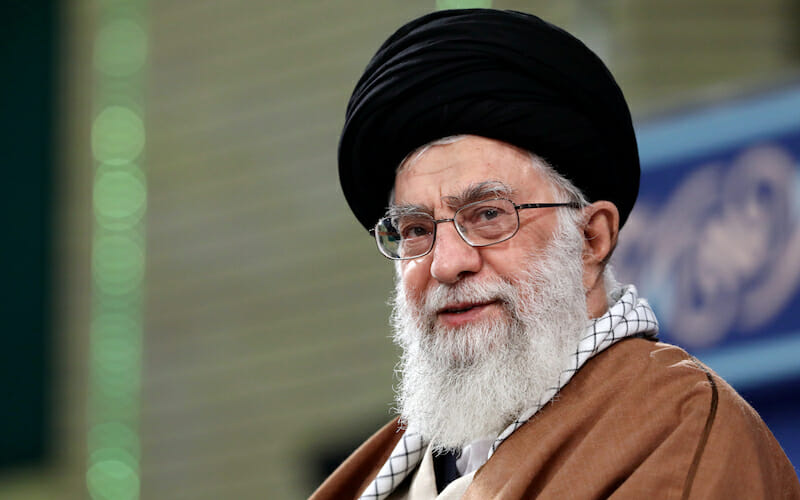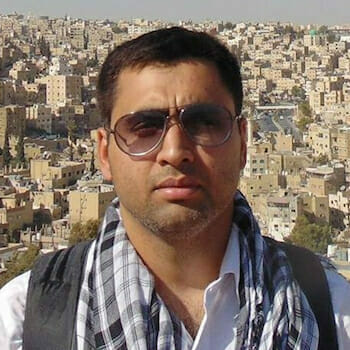
In Iran, the Status Quo can’t be Sustained
The recent protests in Iran sounded a warning bell for the ruling theocracy in Tehran. What started in Iran’s second largest and holy city of Mashhad over rising prices, transfigured into widespread, unprecedented protests against the theocratic regime in towns and cities across the country. The earlier protests against the current status quo mainly occurred in the capital, Tehran, and some other major cities.
The recent protests occurred in a vast panoply of cities and towns, where people protested against living expenses and against a corrupt government. Protesters were so discontented that they attacked police stations, government offices, military installations and seminaries amidst calls for the resignation of the supreme leader and the dismantling of the Islamic Republic.
What caused that much discontentment? Surely the economy was at the heart of grievances that brought the people’s dissatisfactions with the status quo to a boiling point. Economic mismanagement and deep-rooted corruption have given rise to a high rate of unemployment, inflation and widening socioeconomic inequalities. The government’s insensitivity to these grievances has not only affected the working class, but they have also increasingly impacted the lower urban middle class.
Iranians now are finding it harder with every passing day to meet their basic requirements. Ironically Iran is the second biggest producer of petroleum products in the Organisation of Petroleum Exporting Countries (OPEC). These economic hardships are totally unacceptable in this oil rich country. So, a very vital question arises. Where is the oil money going? Last December President Rouhani publicized some details of the 2018 budget which revealed the astronomical portion of state funds going to religious and military entities while local subsidies were being cut. In addition to this Iran spends fortunes on its overseas overt and covert operations: more than $12 billion annually on its military, according to the Stockholm International Peace Research Institute.
Tehran is also providing billions of dollars in the form of subsidies, oil subsidies, credit lines, military assistance, and exports to Syria, whose economy has been shattered by the war. Moreover, Iran also provides enormous amount of assistance to number of groups across Middle East like- Hezbollah in Lebanon, HAMAS and Islamic Jihad in Palestine, Houthi rebels in Yemen, Popular Mobilization Units (PMU) in Iraq and Shia political groups in Bahrain. All of this results in a heavy burden for a country which is also bearing sanctions and continues to struggle with much higher levels of unemployment and inflation. The people of Iran have every reason to be outraged.
Unfortunately, following the 1979 Islamic Revolution the Iranian regime sought to export its ideology abroad. Therefore, it spends Iran’s wealth on promoting and creating the groups which propagate Iranian revolutionary ideology. The Islamic Republic has been a self-declared defender and sponsor of Shia cause. To accomplish this the regime always gave priority to its armed forces and weapon development projects and not to the welfare of the ordinary Iranian which brought this current regime to power. Since the time of Iranian revolution which overthrew Shah Reza ewPahlavi, Iranians have experienced income disparity, unemployment, inflation and a weak currency. These are the fruits of revolution which were delivered to the masses. Now is the time for Iranians to decide whether Iran represents the Iranians or the Shia cause. General public opinion totally rejects State sponsorship of the Shia cause which was clearly illustrated in recent protests when protestors raised slogans like “Forget about Syria, think about us.”
Although the protests seem to have died down, but if Iranian leaders fail to recognize that the status quo cannot be sustained and major reforms are unavoidable, they are only buying time until the next uprising, which could lead to greater instability. People are in no mood to accept wasteful spending of the nation’s wealth on foreign adventures. The leadership must dedicate the country’s wealth to the welfare of the citizens or otherwise eventually they will be overthrown. The ruling class of clerics also has to realize that the government is there to serve the country and its people. President Rouhani who is considered to be a moderate has to urgently push for economic reforms which he promised.
